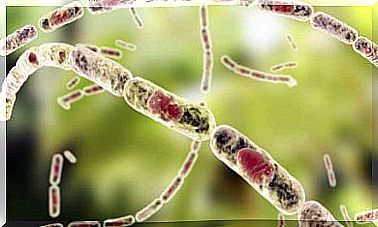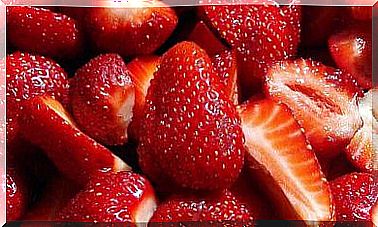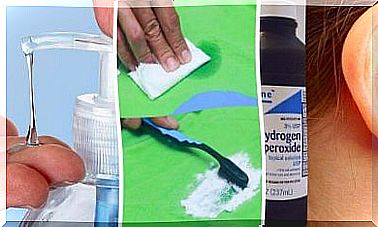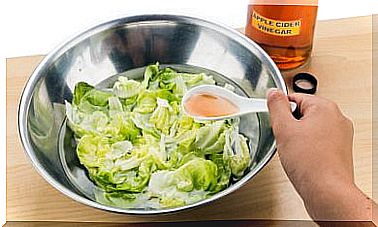Vegetarian Diet: Risks And Solutions
In order not to be deficient in any type of nutrient, it is advisable to eat a varied diet and change our menu daily. We can also consider food supplements

The vegetarian diet, carried out correctly, could be beneficial for health, helping, for example, to reduce the risk of suffering from cardiovascular diseases, diabetes, hypertension and other chronic health problems.
Although there are many classifications of vegetarians, many of them could suffer from certain nutritional deficiencies if they do not plan their intake carefully. Therefore, we want you to know the risks and possible solutions of a vegetarian diet.
Recommendations to follow the vegetarian diet
If you plan to start a vegetarian diet, see your doctor to properly plan your diet and thus avoid nutritional deficiencies.
1. Eat a wide variety of foods
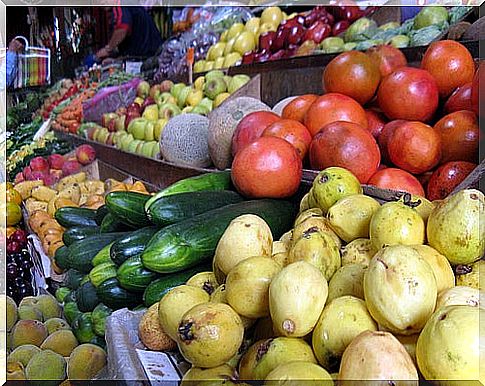
A varied diet is important to everyone, regardless of whether or not one eats animal products. If you are vegan, lacto-ovo vegetarian, pescatarian, or other non-carnivore, it is essential to recognize potential nutrient deficiencies in your diet and a plan to compensate.
Many nutritionists recommend that your daily meal plan include fruits and vegetables of all colors. Not only would this encourage a varied menu, but it would also help you consume more vitamins, minerals, antioxidants, and other nutrients.
Try a new food each week. This can help you incorporate different foods with new nutrients into your diet.
2. Avoid settling into a food routine
If you always eat oatmeal and fruit for breakfast, try switching to peanut butter toast or homemade granola a few days each week. Similarly, mix up the types of appetizers you make. For example, substitute red pepper sticks and hummus for cheese and crackers.
Often times, the recipes listed on vegetarian websites and in cookbooks will include a wide variety of foods, flavors, and nutrients. They can help you incorporate flavor and nutrition into your daily menu.
3. Includes sources of calcium, vitamin B12 and vitamin D
Calcium is important for various bodily functions, including the building and maintenance of bones and teeth, blood clotting, the transmission of nerve impulses and the regulation of heart rhythm, according to an article by Harvard TH Chan .
For this reason, incorporating low-fat dairy products into your daily diet is often recommended . If you don’t want to consume them, you could try a fortified dairy substitute like soy milk. The green vegetables such as broccoli and cabbage kale also contain calcium, but if you base your diet alone these plants could run the risk of deficiencies.
Vitamin B12 is essential for healthy red blood cells. It is found mainly in animal products, although some cereals and soy products have vitamin B12 added. If you don’t eat these foods regularly, it would be important to take a B12 supplement, especially for vegans. Check with your doctor about it.
For its part, vitamin D is also important for the growth and maintenance of bones. If you get regular sun exposure or if you drink soy products with added vitamin D, you are likely getting enough vitamin D. If not, you may need to consider a supplement.
4. Make sure you get enough iron, protein, and Omega-3 fatty acids
According to FAO (Food and Agriculture Organization of the United Nations) , iron is vital for energy and for the proper functioning of red blood cells. In fact, it serves to transport oxygen from the lungs to the tissues.
In general, it is difficult to consume enough iron on a vegetarian diet, since it is more easily absorbed from meat products. Therefore, a vegetarian should consume:
- Dark leafy vegetables.
- Whole grains
- Green peas.
- Lentils.
- Fortified cereals.
- Dry fruits.
In addition, to increase the absorption of iron, you should also eat foods rich in vitamin C, such as cabbage, tomatoes, broccoli, strawberries and citrus fruits.
Protein helps maintain healthy muscles, organs, skin, and bones. Small amounts of dairy products and eggs provide enough protein for most vegetarians, but if you prefer to get your protein from plant sources, try to eat nuts, seeds, soy products, legumes, lentils, and whole grains regularly.
Omega-3 fatty acids help promote healthy tissue, brain and eye development, and cardiovascular health. If you don’t eat fish or eggs, you can try to find products enriched with Omega-3 fatty acids, or opt for a dietary supplement.
5. Visit a health professional once a year
Blood tests and other quick check-ups can help determine if you are deficient in an essential nutrient. If your medical professional is familiar with your eating habits, they may be able to recommend supplements to help you get the right amount of nutrients.
Other tips
The vegetarian and vegan diet, if not balanced and planned by a professional, could increase the risk of iodine deficiency. Iodine is essential in the regulation of thyroid hormones, metabolism, growth, and organ function. Make sure to include about 1/4 teaspoon of iodized salt every day.
In short: carefully plan the vegetarian diet you want to follow. This fact, added to a periodic clinical follow-up, will allow you to carry out a balanced diet with all the nutrients that your body needs.


